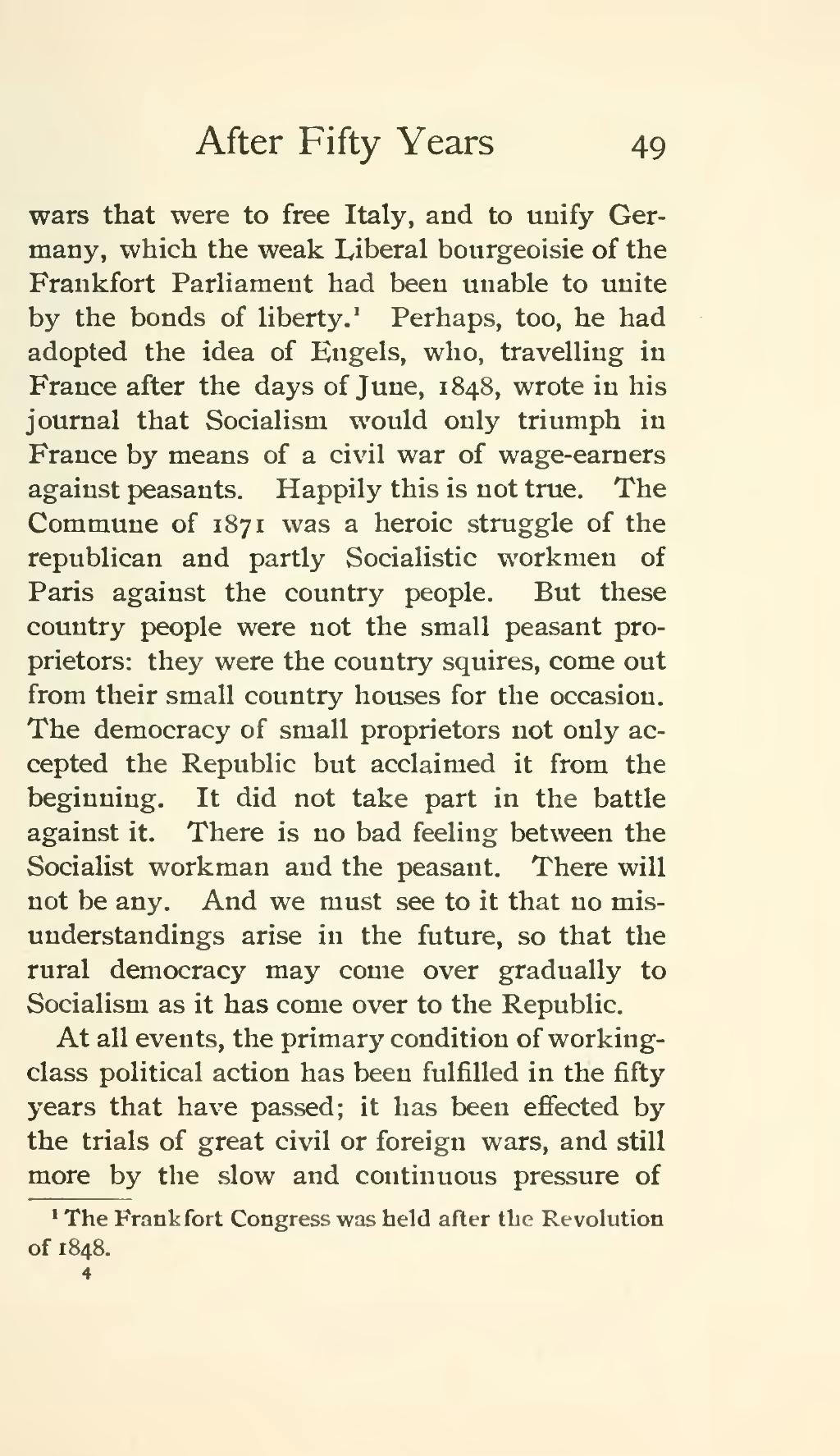wars that were to free Italy, and to unify Germany, which the weak Liberal bourgeoisie of the Frankfort Parliament had been unable to unite by the bonds of liberty.[1] Perhaps, too, he had adopted the idea of Engels, who, travelling in France after the days of June, 1848, wrote in his journal that Socialism would only triumph in France by means of a civil war of wage-earners against peasants. Happily this is not true. The Commune of 1871 was a heroic struggle of the republican and partly Socialistic workmen of Paris against the country people. But these country people were not the small peasant proprietors: they were the country squires, come out from their small country houses for the occasion. The democracy of small proprietors not only accepted the Republic but acclaimed it from the beginning. It did not take part in the battle against it. There is no bad feeling between the Socialist workman and the peasant. There will not be any. And we must see to it that no misunderstandings arise in the future, so that the rural democracy may come over gradually to Socialism as it has come over to the Republic.
At all events, the primary condition of working-class political action has been fulfilled in the fifty years that have passed; it has been effected by the trials of great civil or foreign wars, and still more by the slow and continuous pressure of
- ↑ The Frankfort Congress was held after the Revolution of 1848.
